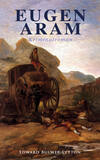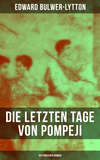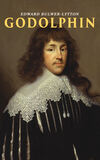Kitabı oku: «The Disowned — Complete», sayfa 19
CHAPTER XLIV
You must challenge him
There’s no avoiding; one or both must drop.
BEAUMONT AND FLETCHER.
“Ha! ha! ha! bravo, Linden!” cried Lord St. George, from the head of his splendid board, in approbation of some witticism of Clarence’s; and ha! ha! ha! or he! he! he! according to the cachinnatory intonations of the guests rang around.
“Your lordship seems unwell,” said Lord Aspeden to Borodaile; “allow me to take wine with you.”
Lord Borodaile bowed his assent.
“Pray,” said Mr. St. George to Clarence, “have you seen my friend Talbot lately?”
“This very morning,” replied Linden: “indeed, I generally visit him three or four times a week; he often asks after you.”
“Indeed!” said Mr. St. George, rather flattered; “he does me much honour; but he is a distant connection of mine, and I suppose I must attribute his recollection of me to that cause. He is a near relation of yours, too, I think: is he not?”
“I am related to him,” answered Clarence, colouring.
Lord Borodaile leaned forward, and his lip curled. Though, in some respects, a very unamiable man, he had, as we have said, his good points. He hated a lie as much as Achilles did; and he believed in his heart of hearts that Clarence had just uttered one.
“Why,” observed Lord Aspeden, “why, Lord Borodaile, the Talbots of Scarsdale are branches of your genealogical tree; therefore your lordship must be related to Linden; ‘you are two cherries on one stalk’!”
“We are by no means related,” said Lord Borodaile, with a distinct and clear voice, intended expressly for Clarence; “that is an honour which I must beg leave most positively to disclaim.”
There was a dead silence; the eyes of all who heard a remark so intentionally rude were turned immediately towards Clarence. His cheek burned like fire; he hesitated a moment, and then said, in the same key, though with a little trembling in his intonation,—
“Lord Borodaile cannot be more anxious to disclaim it than I am.”
“And yet,” returned the viscount, stung to the soul, “they who advance false pretensions ought at least to support them!”
“I do not understand you, my lord,” said Clarence.
“Possibly not,” answered Borodaile, carelessly: “there is a maxim which says that people not accustomed to speak truth cannot comprehend it in others.”
Unlike the generality of modern heroes, who are always in a passion,— off-hand, dashing fellows, in whom irascibility is a virtue,—Clarence was peculiarly sweet-tempered by nature, and had, by habit, acquired a command over all his passions to a degree very uncommon in so young a man. He made no reply to the inexcusable affront he had received. His lip quivered a little, and the flush of his countenance was succeeded by an extreme paleness; this was all: he did not even leave the room immediately, but waited till the silence was broken by some well-bred member of the party; and then, pleading an early engagement as an excuse for his retiring so soon, he rose and departed.
There was throughout the room a universal feeling of sympathy with the affront and indignation against the offender; for, to say nothing of Clarence’s popularity and the extreme dislike in which Lord Borodaile was held, there could be no doubt as to the wantonness of the outrage or the moderation of the aggrieved party. Lord Borodaile already felt the punishment of his offence: his very pride, while it rendered him indifferent to the spirit, had hitherto kept him scrupulous as to the formalities of social politeness; and he could not but see the grossness with which he had suffered himself to violate them and the light in which his conduct was regarded. However, this internal discomfort only rendered him the more embittered against Clarence and the more confirmed in his revenge. Resuming, by a strong effort, all the external indifference habitual to his manner, he attempted to enter into a conversation with those of the party who were next to him but his remarks produced answers brief and cold; even Lord Aspeden forgot his diplomacy and his smile; Lord St. George replied to his observations by a monosyllable; and the Duke of Haverfield, for the first time in his life, asserted the prerogative which his rank gave him of setting the example,—his grace did not reply to Lord Borodaile at all. In truth, every one present was seriously displeased. All civilized societies have a paramount interest in repressing the rude. Nevertheless, Lord Borodaile bore the brunt of his unpopularity with a steadiness and unembarrassed composure worthy of a better cause; and finding, at last, a companion disposed to be loquacious in the person of Sir Christopher Findlater (whose good heart, though its first impulse resented more violently than that of any heart present the discourtesy of the viscount, yet soon warmed to the desagremens of his situation, and hastened to adopt its favourite maxim of forgive and forget), Lord Borodaile sat the meeting out; and if he did not leave the latest, he was at least not the first to follow Clarence: “L’orgueil ou donne le courage, ou il y supplee.” [“Pride either gives courage or supplies the place of it.”]
Meanwhile Linden had returned to his solitary home. He hastened to his room, locked the door, flung himself on his sofa, and burst into a violent and almost feminine paroxysm of tears. This fit lasted for more than an hour; and when Clarence at length stilled the indignant swellings of his heart, and rose from his supine position, he started, as his eye fell upon the opposite mirror, so haggard and exhausted seemed the forced and fearful calmness of his countenance. With a hurried step; with arms now folded on his bosom, now wildly tossed from him; and the hand so firmly clenched that the very bones seemed working through the skin; with a brow now fierce, now only dejected; and a complexion which one while burnt as with the crimson flush of a fever, and at another was wan and colourless, like his whose cheek a spectre has blanched,—Clarence paced his apartment, the victim not only of shame,—the bitterest of tortures to a young and high mind,—but of other contending feelings, which alternately exasperated and palsied his wrath, and gave to his resolves at one moment an almost savage ferocity and at the next an almost cowardly vacillation.
The clock had just struck the hour of twelve when a knock at the door announced a visitor. Steps were heard on the stairs and presently a tap at Clarence’s room-door. He unlocked it and the Duke of Haverfield entered. “I am charmed to find you at home,” cried the duke, with his usual half kind, half careless address. “I was determined to call upon you, and be the first to offer my services in this unpleasant affair.”
Clarence pressed the duke’s hand, but made no answer.
“Nothing could be so unhandsome as Lord Borodaile’s conduct,” continued the duke. “I hope you both fence and shoot well. I shall never forgive you, if you do not put an end to that piece of rigidity.”
Clarence continued to walk about the room in great agitation; the duke looked at him with some surprise. At last Linden paused by the window, and said, half unconsciously, “It must be so: I cannot avoid fighting!”
“Avoid fighting!” cried his grace, in undisguised astonishment. “No, indeed: but that is the least part of the matter; you must kill as well as fight him.”
“Kill him!” cried Clarence, wildly, “whom?” and then sinking into a chair, he covered his face with his hands for a few moments, and seemed to struggle with his emotions.
“Well,” thought the duke, “I never was more mistaken in my life. I could have bet my black horse against Trevanion’s Julia, which is certainly the most worthless thing I know, that Linden had been a brave fellow: but these English heroes almost go into fits at a duel; one manages such things, as Sterne says, better in France.”
Clarence now rose, calm and collected. He sat down; wrote a brief note to Borodaile, demanding the fullest apology, or the earliest meeting; put it into the duke’s hands, and said with a faint smile, “My dear duke, dare I ask you to be a second to a man who has been so grievously affronted and whose genealogy has been so disputed?”
“My dear Linden,” said the duke, warmly, “I have always been grateful to my station in life for this advantage,—the freedom with which it has enabled me to select my own acquaintance and to follow my own pursuits. I am now more grateful to it than ever, because it has given me a better opportunity than I should otherwise have had of serving one whom I have always esteemed. In entering into your quarrel I shall at least show the world that there are some men not inferior in pretensions to Lord Borodaile who despise arrogance and resent overbearance even to others. Your cause I consider the common cause of society; but I shall take it up, if you will allow me, with the distinguishing zeal of a friend.”
Clarence, who was much affected by the kindness of this speech, replied in a similar vein; and the duke, having read and approved the letter, rose. “There is, in my opinion,” said he, “no time to be lost. I will go to Borodaile this very evening: adieu, mon cher! you shall kill the Argus, and then carry off the Io. I feel in a double passion with that ambulating poker, who is only malleable when he is red-hot, when I think how honourably scrupulous you were with La Meronville last night, notwithstanding all her advances; but I go to bury Caesar, not to scold him. Au revoir.”
CHAPTER XLV
Conon.—You’re well met, Crates.
Crates.—If we part so, Conon.
-Queen of Corinth.
It was as might be expected from the character of the aggressor. Lord Borodaile refused all apology, and agreed with avidity to a speedy rendezvous. He chose pistols (choice, then, was not merely nominal), and selected Mr. Percy Bobus for his second, a gentleman who was much fonder of acting in that capacity than in the more honourable one of a principal. The author of “Lacon” says “that if all seconds were as averse to duels as their principals, there would be very little blood spilt in that way;” and it was certainly astonishing to compare the zeal with which Mr. Bobus busied himself about this “affair” with that testified by him on another occasion when he himself was more immediately concerned.
The morning came. Mr. Bobus breakfasted with his friend. “Damn it, Borodaile,” said he, as the latter was receiving the ultimate polish of the hairdresser, “I never saw you look better in my life. It will be a great pity if that fellow shoots you.”
“Shoots me!” said Lord Borodaile, very quietly,—“me! no! that is quite out of the question; but joking apart, Bobus, I will not kill the young man. Where shall I hit him?”
“In the cap of the knee,” said Mr. Percy, breaking an egg.
“Nay, that will lame him for life,” said Lord Borodaile, putting on his cravat with peculiar exactitude.
“Serve him right,” said Mr. Bobus. “Hang him, I never got up so early in my life: it is quite impossible to eat at this hour. Oh!—a propos, Borodaile, have you left any little memoranda for me to execute?”
“Memoranda!—for what?” said Borodaile, who had now just finished his toilet.
“Oh!” rejoined Mr. Percy Bobus, “in case of accident, you know: the man may shoot well, though I never saw him in the gallery.”
“Pray,” said Lord Borodaile, in a great though suppressed passion, “pray, Mr. Bobus, how often have I to tell you that it is not by Mr. Linden that my days are to terminate: you are sure that Carabine saw to that trigger?”
“Certain,” said Mr. Percy, with his mouth full, “certain. Bless me, here’s the carriage, and breakfast not half done yet.”
“Come, come,” cried Borodaile, impatiently, “we must breakfast afterwards. Here, Roberts, see that we have fresh chocolate and some more cutlets when we return.”
“I would rather have them now,” said Mr. Bobus, foreseeing the possibility of the return being single: “Ibis! redibis?” etc.
“Come, we have not a moment to lose,” exclaimed Borodaile, hastening down the stairs; and Mr. Percy Bobus followed, with a strange mixture of various regrets, partly for the breakfast that was lost and partly for the friend that might be.
When they arrived at the ground, Clarence and the duke were already there: the latter, who was a dead shot, had fully persuaded himself that Clarence was equally adroit, and had, in his providence for Borodaile, brought a surgeon. This was a circumstance of which the viscount, in the plenitude of his confidence for himself and indifference for his opponent, had never once dreamed.
The ground was measured; the parties were about to take the ground. All Linden’s former agitation had vanished; his mien was firm, grave, and determined: but he showed none of the careless and fierce hardihood which characterized his adversary; on the contrary, a close observer might have remarked something sad and dejected amidst all the tranquillity and steadiness of his brow and air.
“For Heaven’s sake,” whispered the duke, as he withdrew from the spot, “square your body a little more to your left and remember your exact level. Borodaile is much shorter than you.”
There was a brief, dread pause: the signal was given; Borodaile fired; his ball pierced Clarence’s side; the wounded man staggered one step, but fell not. He raised his pistol; the duke bent eagerly forward; an expression of disappointment and surprise passed his lips; Clarence had fired in the air. The next moment Linden felt a deadly sickness come over him; he fell into the arms of the surgeon. Borodaile, touched by a forbearance which he had so little right to expect, hastened to the spot. He leaned over his adversary in greater remorse and pity than he would have readily confessed to himself. Clarence unclosed his eyes; they dwelt for one moment upon the subdued and earnest countenance of Borodaile.
“Thank God,” he said faintly, “that you were not the victim,” and with those words he fell back insensible. They carried him to his lodgings. His wound was accurately examined. Though not mortal, it was of a dangerous nature; and the surgeons ended a very painful operation by promising a very lingering recovery.
What a charming satisfaction for being insulted!
CHAPTER XLVI
Je me contente de ce qui peut s’ecrire, et je reve tout ce qui peut se rever.—DE SEVIGNE.
[“I content myself with writing what I am able, and I dream all I possibly can dream.”]
About a week after his wound, and the second morning of his return to sense and consciousness, when Clarence opened his eyes, they fell upon a female form seated watchfully and anxiously by his bedside. He raised himself in mute surprise, and the figure, startled by the motion, rose, drew the curtain, and vanished. With great difficulty he rang his bell. His valet, Harrison, on whose mind, though it was of no very exalted order, the kindness and suavity of his master had made a great impression, instantly appeared.
“Who was that lady?” asked Linden. “How came she here?”
Harrison smiled: “Oh, sir, pray please to lie down, and make yourself easy: the lady knows you very well and would come here; she insists upon staying in the house, so we made up a bed in the drawing-room and she has watched by you night and day. She speaks very little English to be sure, but your honour knows, begging your pardon, how well I speak French.”
“French?” said Clarence, faintly,—“French? In Heaven’s name, who is she?”
“A Madame—Madame—La Melonveal, or some such name, sir,” said the valet.
Clarence fell back. At that moment his hand was pressed. He turned, and saw Talbot by his side. The kind old man had not suffered La Meronville to be Linden’s only nurse: notwithstanding his age and peculiarity of habits, he had fixed his abode all the day in Clarence’s house, and at night, instead of returning to his own home, had taken up his lodgings at the nearest hotel.
With a jealous and anxious eye to the real interest and respectability of his adopted son, Talbot had exerted all his address, and even all his power, to induce La Meronville, who had made her settlement previous to Talbot’s, to quit the house, but in vain. With that obstinacy which a Frenchwoman when she is sentimental mistakes for nobility of heart, the ci-devant amante of Lord Borodaile insisted upon watching and tending one of whose sufferings she said and believed she was the unhappy though innocent cause: and whenever more urgent means of removal were hinted at La Meronville flew to the chamber of her beloved, apostrophized him in a strain worthy of one of D’Arlincourt’s heroines, and in short was so unreasonably outrageous that the doctors, trembling for the safety of their patient, obtained from Talbot a forced and reluctant acquiescence in the settlement she had obtained.
Ah! what a terrible creature a Frenchwoman is, when, instead of coquetting with a caprice, she insists upon conceiving a grande passion. Little, however, did Clarence, despite his vexation when he learned of the bienveillance of La Meronville, foresee the whole extent of the consequences it would entail upon him: still less did Talbot, who in his seclusion knew not the celebrity of the handsome adventuress, calculate upon the notoriety of her motions or the ill effect her ostentatious attachment would have upon Clarence’s prosperity as a lover to Lady Flora. In order to explain these consequences the more fully, let us, for the present, leave our hero to the care of the surgeon, his friends, and his would-be mistress; and while he is more rapidly recovering than the doctors either hoped or presaged, let us renew our acquaintance with a certain fair correspondent.
LETTER FROM THE LADY FLORA ARDENNE TO MISS ELEANOR TREVANION
My Dearest Eleanor,—I have been very ill, or you would sooner have received an answer to your kind,-too kind and consoling letter. Indeed I have only just left my bed: they say that I have been delirious, and I believe it; for you cannot conceive what terrible dreams I have had. But these are all over now, and everyone is so kind to me,—my poor mother above all! It is a pleasant thing to be ill when we have those who love us to watch our recovery.
I have only been in bed a few days; yet it seems to me as if a long portion of my existence were past,—as if I had stepped into a new era. You remember that my last letter attempted to express my feelings at Mamma’s speech about Clarence, and at my seeing him so suddenly. Now, dearest, I cannot but look on that day, on these sensations, as on a distant dream. Every one is so kind to me, Mamma caresses and soothes me so fondly, that I fancy I must have been under some illusion. I am sure they could not seriously have meant to forbid his addresses. No, no: I feel that all will yet be well,—so well, that even you, who are of so contented a temper, will own that if you were not Eleanor you would be Flora.
I wonder whether Clarence knows that I have been ill? I wish you knew him. Well, dearest, this letter—a very unhandsome return, I own, for yours—must content you at present, for they will not let me write more; though, so far as I am concerned, I am never so weak, in frame I mean, but what I could scribble to you about him.
Addio, carissima. F. A.
I have prevailed on Mamma, who wished to sit by me and amuse me, to go to the Opera to-night, the only amusement of which she is particularly fond. Heaven forgive me for my insincerity, but he always comes into our box, and I long to hear some news of him.
LETTER II. FROM THE SAME TO THE SAME
Eleanor, dearest Eleanor, I am again very ill, but not as I was before, ill from a foolish vexation of mind: no, I am now calm and even happy. It was from an increase of cold only that I have suffered a relapse. You may believe this, I assure you, in spite of your well meant but bitter jests upon my infatuation, as you very rightly call it, for Mr. Linden. You ask me what news from the Opera? Silly girl that I was, to lie awake hour after hour, and refuse even to take my draught, lest I should be surprised into sleep, till Mamma returned. I sent Jermyn down directly I heard her knock at the door (oh, how anxiously I had listened for it!) to say that I was still awake and longed to see her. So, of course, Mamma came up, and felt my pulse, and said it was very feverish, and wondered the draught had not composed me; with a great deal more to the same purpose, which I bore as patiently as I could, till it was my turn to talk; and then I admired her dress and her coiffure, and asked if it was a full house, and whether the prima donna was in voice, etc.: till, at last, I won my way to the inquiry of who were her visitors. “Lord Borodaile,” said she, “and the Duke of ——, and Mr. St. George, and Captain Leslie, and Mr. De Retz, and many others.” I felt so disappointed, Eleanor, but did not dare ask whether he was not of the list; till, at last, my mother observing me narrowly, said, “And by the by, Mr. Linden looked in for a few minutes. I am glad, my dearest Flora, that I spoke to you so decidedly about him the other day.” “Why, Mamma?” said I, hiding my face under the clothes. “Because,” said she, in rather a raised voice, “he is quite unworthy of you! but it is late now, and you should go to sleep; to-morrow I will tell you more.” I would have given worlds to press the question then, but could not venture. Mamma kissed and left me. I tried to twist her words into a hundred meanings, but in each I only thought that they were dictated by some worldly information,—some new doubts as to his birth or fortune; and, though that supposition distressed me greatly, yet it could not alter my love or deprive me of hope; and so I cried and guessed, and guessed and cried, till at last I cried myself to sleep.
When I awoke, Mamma was already up, and sitting beside me: she talked to me for more than an hour upon ordinary subjects, till at last, perceiving how absent or rather impatient I appeared, she dismissed Jermyn, and spoke to me thus:—
“You know, Flora, that I have always loved you, more perhaps than I ought to have done, more certainly than I have loved your brothers and sisters; but you were my eldest child, my first-born, and all the earliest associations of a mother are blent and entwined with you. You may be sure therefore that I have ever had only your happiness in view, and that it is only with a regard to that end that I now speak to you.”
I was a little frightened, Eleanor, by this opening, but I was much more touched, so I took Mamma’s hand and kissed and wept silently over it; she continued: “I observed Mr. Linden’s attention to you, at ——; I knew nothing more of his rank and birth then than I do at present: but his situation in the embassy and his personal appearance naturally induced me to suppose him a gentleman of family, and, therefore, if not a great at least not an inferior match for you, so far as worldly distinctions are concerned. Added to this, he was uncommonly handsome, and had that general reputation for talent which is often better than actual wealth or hereditary titles. I therefore did not check, though I would not encourage any attachment you might form for him; and nothing being declared or decisive on either side when we left—, I imagined that if your flirtation with him did even amount to a momentary and girlish phantasy, absence and change of scene would easily and rapidly efface the impression. I believe that in a great measure it was effaced when Lord Aspeden returned to England, and with him Mr. Linden. You again met the latter in society almost as constantly as before; a caprice nearly conquered was once more renewed; and in my anxiety that you should marry, not for aggrandizement, but happiness, I own to my sorrow that I rather favoured than forbade his addresses. The young man—remember, Flora—appeared in society as the nephew and heir of a gentleman of ancient family and considerable property; he was rising in diplomacy, popular in the world, and, so far as we could see, of irreproachable character; this must plead my excuse for tolerating his visits, without instituting further inquiries respecting him, and allowing your attachment to proceed without ascertaining how far it had yet extended. I was awakened to a sense of my indiscretion by an inquiry which Mr. Linden’s popularity rendered general; namely, if Mr. Talbot was his uncle, who was his father? who his more immediate relations? and at that time Lord Borodaile informed us of the falsehood he had either asserted or allowed to be spread in claiming Mr. Talbot as his relation. This you will observe entirely altered the situation of Mr. Linden with respect to you. Not only his rank in life became uncertain, but suspicious. Nor was this all: his very personal respectability was no longer unimpeachable. Was this dubious and intrusive person, without a name and with a sullied honour, to be your suitor? No, Flora; and it was from this indignant conviction that I spoke to you some days since. Forgive me, my child, if I was less cautious, less confidential than I am now. I did not imagine the wound was so deep, and thought that I should best cure you by seeming unconscious of your danger. The case is now changed; your illness has convinced me of my fault, and the extent of your unhappy attachment: but will my own dear child pardon me if I still continue, if I even confirm, my disapproval of her choice? Last night at the Opera Mr. Linden entered my box. I own that I was cooler to him than usual. He soon left us, and after the Opera I saw him with the Duke of Haverfield, one of the most incorrigible roues of the day, leading out a woman of notoriously bad character and of the most ostentatious profligacy. He might have had some propriety, some decency, some concealment at least, but he passed just before me,—before the mother of the woman to whom his vows of honourable attachment were due and who at that very instant was suffering from her infatuation for him. Now, Flora, for this man, an obscure and possibly a plebeian adventurer, whose only claim to notice has been founded on falsehood, whose only merit, a love of you, has been, if not utterly destroyed, at least polluted and debased,—for this man, poor alike in fortune, character, and honour, can you any longer profess affection or esteem?”
“Never, never, never!” cried I, springing from the bed, and throwing myself upon my mother’s neck. “Never: I am your own Flora once more. I will never suffer any one again to make me forget you,” and then I sobbed so violently that Mamma was frightened, and bade me lie down and left me to sleep. Several hours have passed since then, and I could not sleep nor think, and I would not cry, for he is no longer worthy of my tears; so I have written to you.
Oh, how I despise and hate myself for having so utterly, in my vanity and folly, forgotten my mother, that dear, kind, constant friend, who never cost me a single tear, but for my own ingratitude! Think, Eleanor, what an affront to me,—to me, who, he so often said, had made all other women worthless in his eyes. Do I hate him? No, I cannot hate. Do I despise? No, I will not despise, but I will forget him, and keep my contempt and hatred for myself.
God bless you! I am worn out. Write soon, or rather come, if possible, to your affectionate but unworthy friend, F. A.
Good Heavens! Eleanor, he is wounded. He has fought with Lord Borodaile. I have just heard it; Jermyn told me. Can it, can it be true? What,—what have I said against him? Hate? forget? No, no: I never loved him till now.
LETTER III. FROM THE SAME TO THE SAME
(After an interval of several weeks.)
Time has flown, my Eleanor, since you left me, after your short but kind visit, with a heavy but healing wing. I do not think I shall ever again be the giddy girl I have been; but my head will change, not my heart; that was never giddy, and that shall still be as much yours as ever. You are wrong in thinking I have not forgotten, at least renounced all affection for Mr. Linden. I have, though with a long and bitter effort. The woman for whom he fought went, you know, to his house, immediately on hearing of his wound. She has continued with him ever since. He had the audacity to write to me once; my mother brought me the note, and said nothing. She read my heart aright. I returned it unopened. He has even called since his convalescence. Mamma was not at home to him. I hear that he looks pale and altered. I hope not,—at least I cannot resist praying for his recovery. I stay within entirely; the season is over now, and there are no parties: but I tremble at the thought of meeting him even in the Park or the Gardens. Papa talks of going into the country next week. I cannot tell you how eagerly I look forward to it: and you will then come and see me; will you not, dearest Eleanor?
Ah! what happy days we will have yet: we will read Italian together, as we used to do; you shall teach me your songs, and I will instruct you in mine; we will keep birds as we did, let me see, eight years ago. You will never talk to me of my folly: let that be as if it had never been; but I will wonder with you about your future choice, and grow happy in anticipating your happiness. Oh, how selfish I was some weeks ago! then I could only overwhelm you with my egotisms: now, Eleanor, it is your turn; and you shall see how patiently I will listen to yours. Never fear that you can be too prolix: the diffuser you are, the easier I shall forgive myself.










